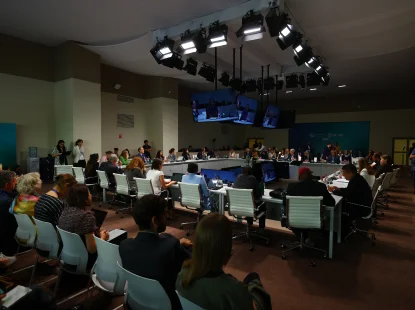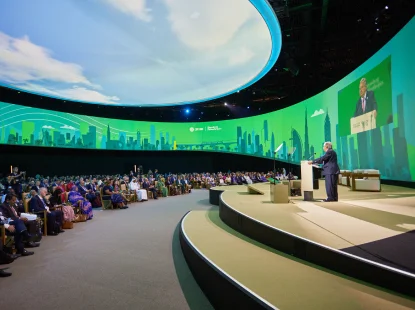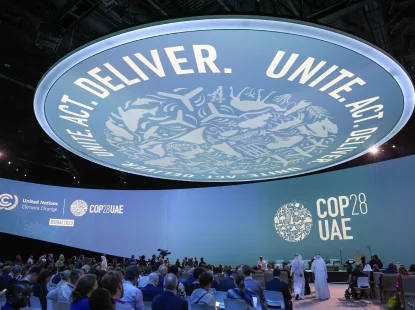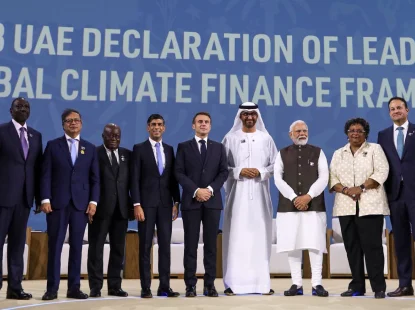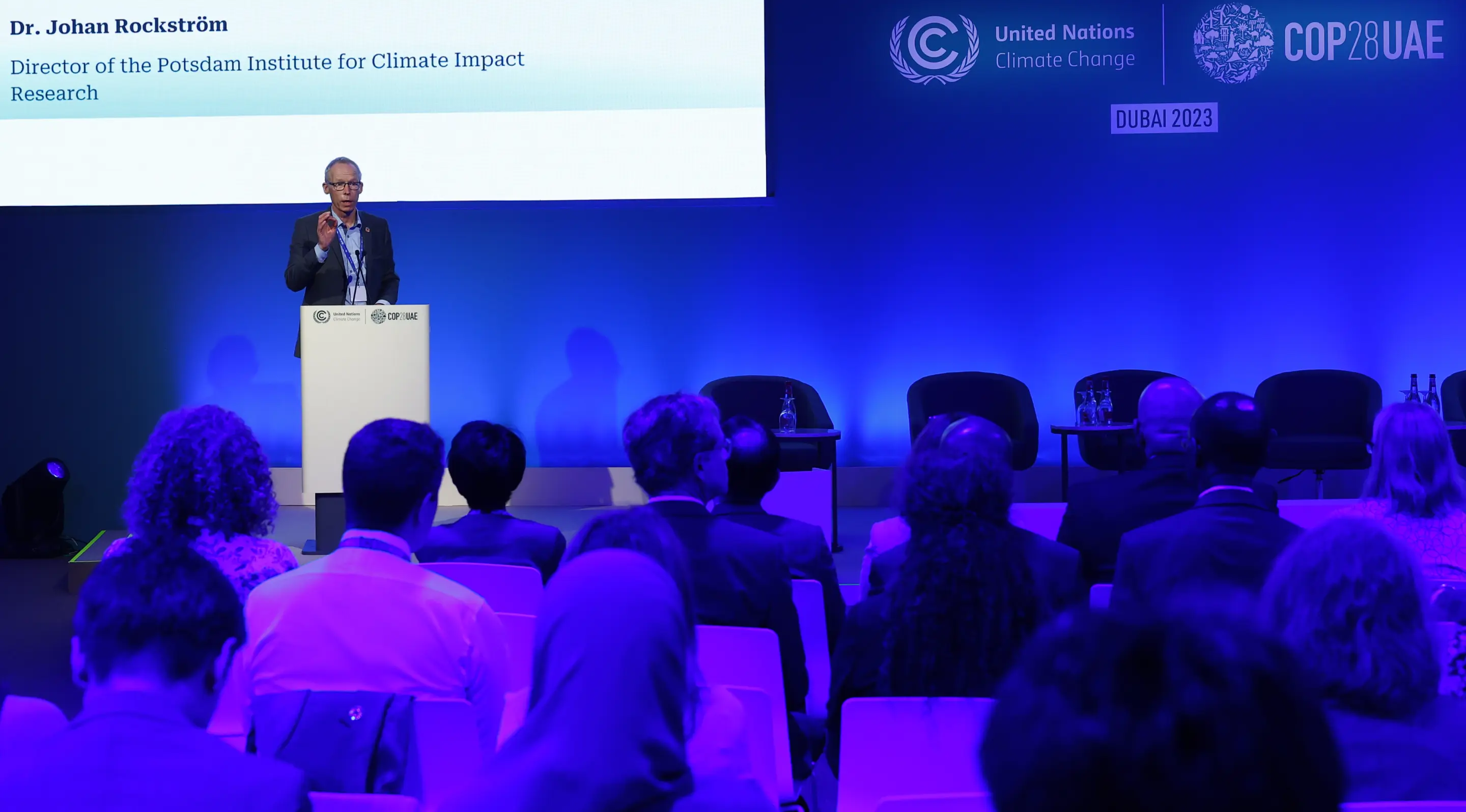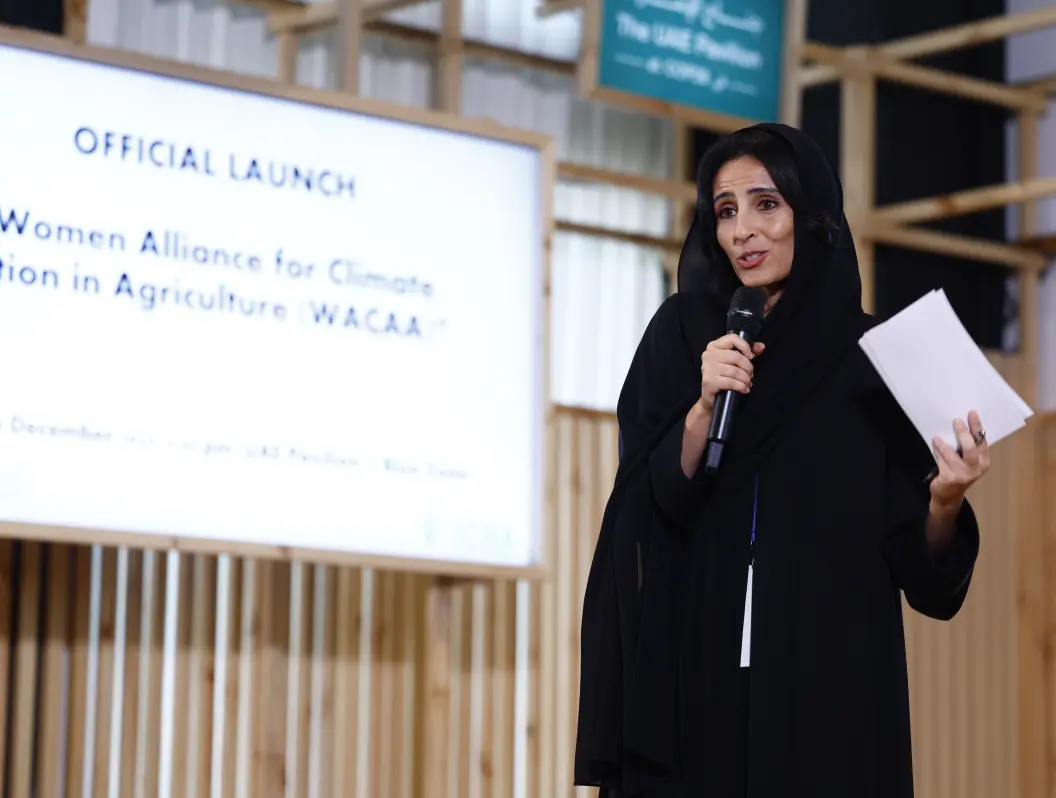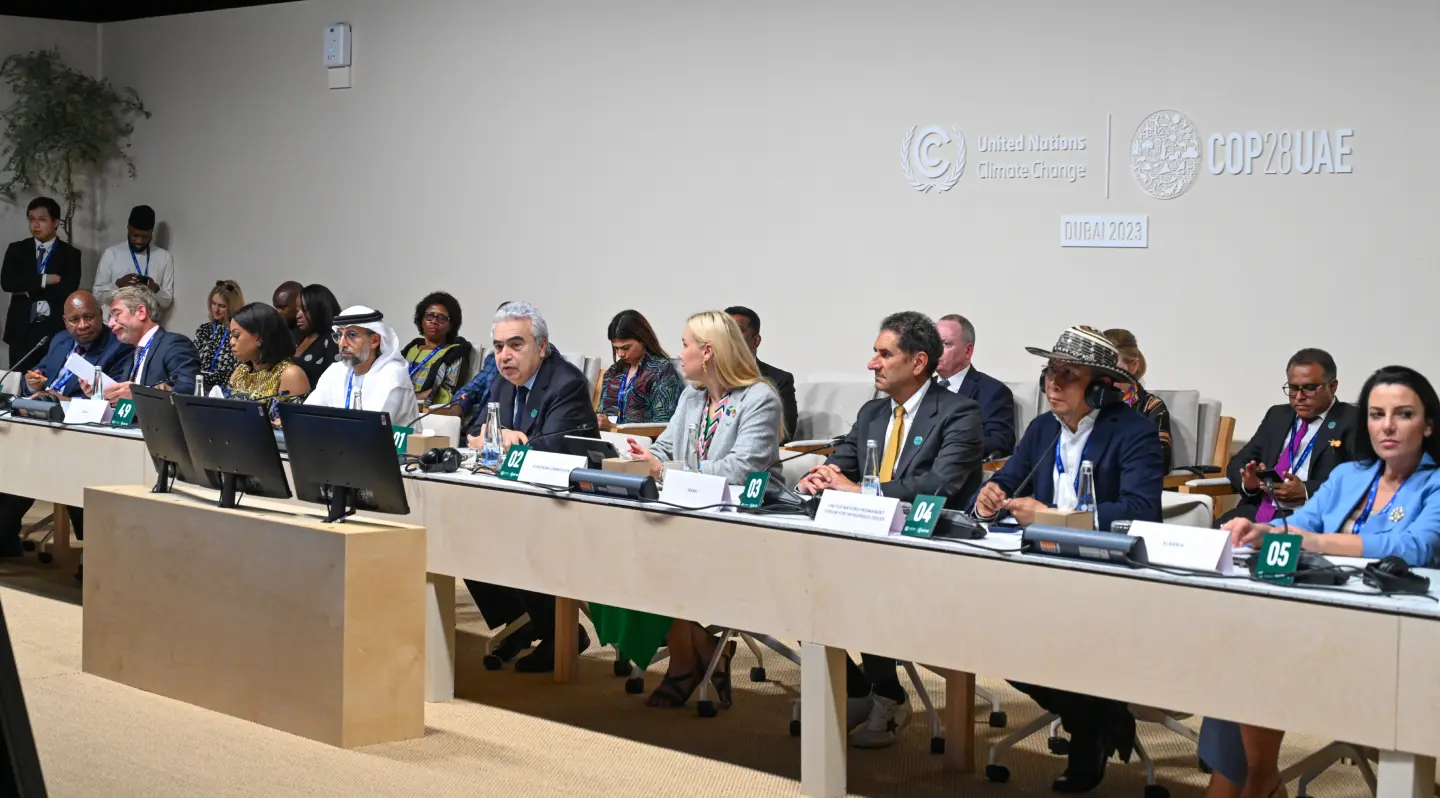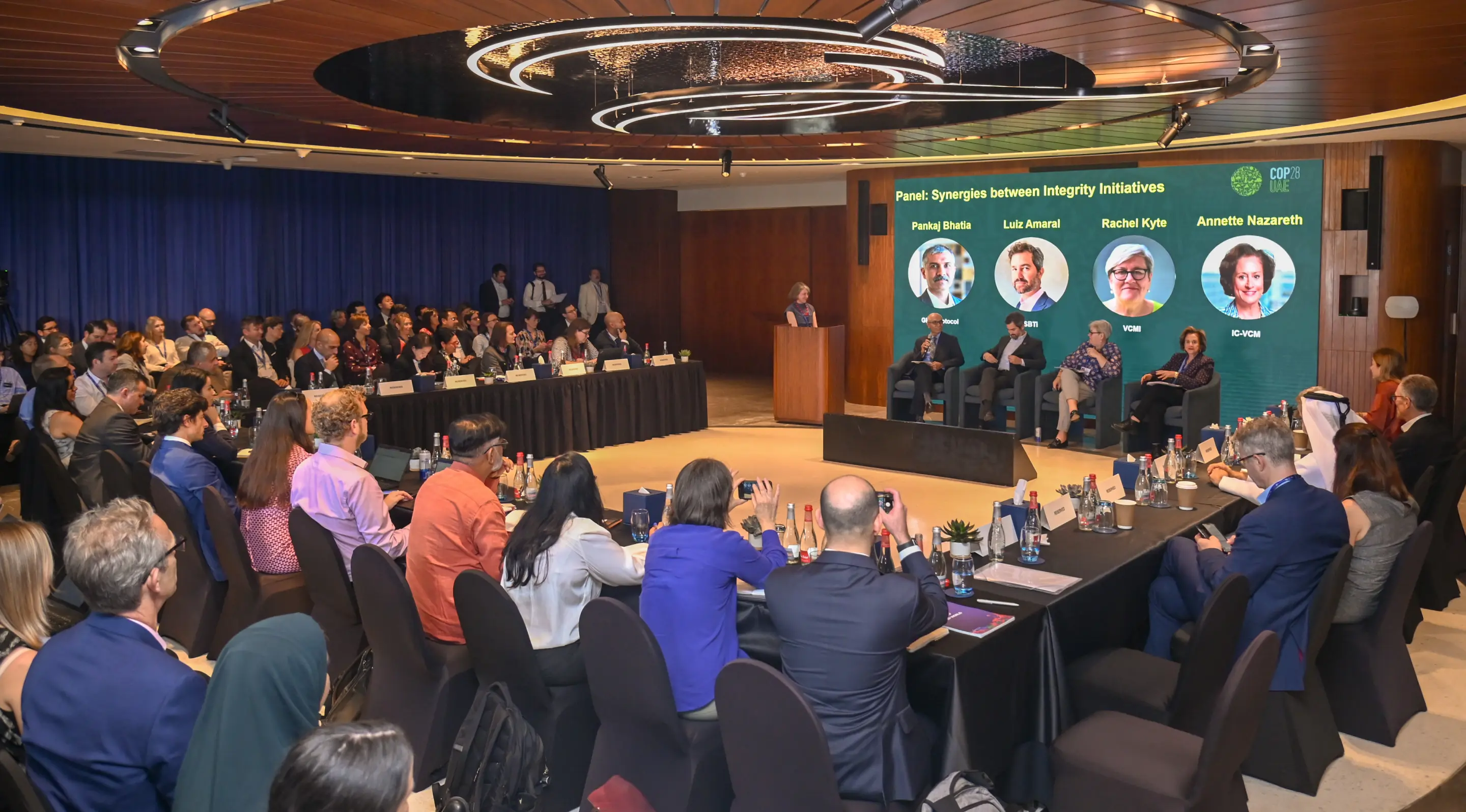COP28 Gender-Responsive Just Transitions and Climate Action Partnership
1. Reaffirm the relevant outcomes of previous Conferences of the Parties to the United Nations Framework Convention on Climate Change, serving as the meeting of the Parties to the Paris Agreement and the enhanced Lima Work Program on Gender and its Gender Action Plan.
2. Reaffirm, as applicable, the Beijing Declaration and Platform for Action and the outcome documents of its reviews.
3. Reaffirm the 2030 Agenda for Sustainable Development, including the fifth goal on achieving gender equality and empowering all women and girls.
4. Reaffirm, as applicable, commitments to gender equality and the empowerment of all women and girls made at relevant United Nations summits and conferences, including the International Conference on Population and Development and its Programme of Action and the outcome documents of its reviews.
5. Welcome, as applicable, the agreed conclusions of the 66th Session of the Commission on the Status of Women, on achieving gender equality and the empowerment of women in the context of climate change, energy transitions, environmental and disaster risk reduction policies and programs.
6. Welcome the Intergovernmental Panel on Climate Change’s Synthesis Report of the 6th Assessment Report, which recognises that vulnerabilities and climate risks can be reduced through carefully designed policies and laws that address specific inequities such as those based on gender.
Women’s and girls’ full, equal and meaningful participation and leadership
7. Acknowledge the significant contributions and roles of all women and girls in decision-making, governance and finance for climate action, including the clean energy transition.
8. Emphasise that achieving gender equality and women’s empowerment, including for women and girls facing intersecting inequalities, such as Indigenous women and girls, rural women and girls, and women and girls with disabilities, accelerates the implementation of the Paris Agreement.
Nexus of Gender Equality and Just Transitions
9. Recognise the disproportionate impacts of climate change on all women and girls, including as they relate to access to and the creation of decent work in the context of just transitions and as these effects relate to exacerbating inequalities.
10. Emphasise that where women have secure land rights that are legally recognized and enforceable, they are better able to use and benefit from the lands and resources and meaningfully participate in sustainable agriculture and land restoration efforts, with strong climate adaptation and mitigation benefits.
11. Take into account the climate-linked sectors in which women are often employed, including, but not limited to, agriculture, fisheries, tourism, the care economy, and the garment industry, and recognize that access to resources, services, education and training in climate-smart practices in these and other sectors, such as clean energy, is critical to both women’s economic security and just and inclusive transitions to decent work and sustainable, climate adaptive livelihoods and effective climate action.
12. Express concern that climate change is exacerbating existing inequalities, as well as gender-based violence, and barriers to accessing critical services that underpin access to decent work, including, but not limited to, education, food, clean water and sanitation, health services including sexual and reproductive health, education, emergency response, and a healthy environment, and stress the need to strengthen and expand access to gender-responsive social protection systems.
Advancing a “Gender-Responsive Just” Transition
13. Recognizing that urgent action is needed to combat climate change, we commit to working collaboratively to support just and inclusive transitions that advance gender equality and the goals of the enhanced Lima Work Program on Gender and its Gender Action Plan. To that end we will strengthen efforts to:
- Fully incorporate the human rights of women and girls in just transition efforts, including through social dialogue and working with decision makers and with men and boys, to promote gender-responsive investments in climate action that provide for the full, equal and meaningful participation and leadership of all women and girls.
- Encourage gender-responsive strategies on mitigation and adaptation, in line with national, regional, and international instruments, to strengthen the resilience to the adverse effects of climate change, with the aim of protecting, respecting and promoting human rights, economic empowerment, access to decent work and education, sustainable livelihoods and gender-responsive and disability-inclusive social protection systems that facilitate livelihoods transitions.
- Implement, as appropriate, gender-responsive budgeting, policy and planning, and develop legislation and policy, as well as promote skills training, including in informal sectors, and equal opportunities in job markets,
- Identify funding sources and opportunities with a view to continuing to enhance access to funding for women and girls in the regions most impacted by climate change, and with a view to promote gender-responsive, inclusive, locally-led climate action, and improve tracking and reporting on gender-related aspects of climate finance, impact measurement and mainstreaming.
- Share experiences and best practices on gender-responsive planning and budgeting in the context of a just transition and conduct studies on gender-responsive just transitions in respective national contexts.
- Encourage and support the development of evidence-based methodologies, including sex, disability, and age-disaggregated data and standard indicators, to assess gender equality in the transition to a Paris Agreement-aligned economy.
- Pursue efforts and collaboration across sectors and in partnership with women’s organisations to ensure that they counteract any potential negative consequences and benefit from the transition to a Paris Agreement-aligned economy, including expanding access to gender-responsive social protection, and to support efforts towards the eradication of poverty in the transition.
- Promote measures to reduce, redistribute and value unpaid care and domestic work, including by promoting the equal sharing of responsibilities between women and men within the household.
- Make best efforts to reflect progress on gender equality in Biennial Transparency Reports, as appropriate.
- Reconvene for a dialogue at the 31st UN Climate Change Conference to report on the implementation of these commitments.
Signatures:
1. Albania
2. Andorra
3. Antigua and Barbuda
4. Australia
5. Austria
6. Azerbaijan
7. Bangladesh
8. Belgium
9. Burkina Faso
10. Cabo Verde
11. Canada
12. Chad
13. Chile
14. China
15. Colombia
16. Comoros
17. Cook Islands
18. Costa Rica
19. Cote d'Ivoire
20. Cyprus
21. Czechia
22. Democratic Republic of the Congo
23. Denmark
24. Dominican Republic
25. Ecuador
26. Estonia
27. Fiji
28. Finland
29. France
30. Germany
31. Guatemala
32. Hungary
33. Iceland
34. Ireland
35. Israel
36. Jamaica
37. Japan
38. Jordan
39. Kiribati
40. Kyrgyzstan
41. Latvia
42. Lebanon
43. Lesotho
44. Mali
45. Mexico
46. Micronesia
47. Moldova
48. Monaco
49. Mongolia
50. Morocco
51. Netherlands
52. New Zealand
53. Nicaragua
54. Nigeria
55. North Macedonia
56. Norway
57. Pakistan
58. Palau
59. Paraguay
60. Peru
61. Poland
62. Portugal
63. Rwanda
64. Saint Vincent and the Grenadines
65. Serbia
66. Seychelles
67. Sierra Leone
68. Slovenia
69. Somalia
70. Spain
71. Sri Lanka
72. Sweden
73. Switzerland
74. Tuvalu
75. UAE
76. Ukraine
77. United Kingdom
78. United States of America
79. Uruguay
80. Venezuela
81. Viet Nam
82. Yemen
